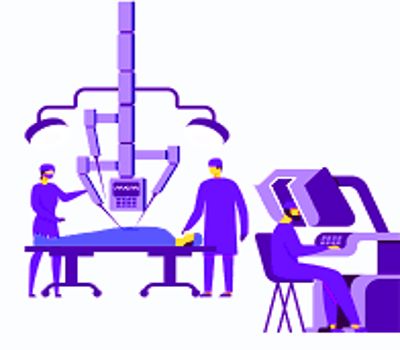Biomedical engineering (BME) is the application of the principles and problem-solving techniques of engineering to biology and medicine. BME is also known as medical engineering, is the application of engineering principles and design concepts to medicine and biology for healthcare purposes (e.g., diagnostic or therapeutic). It is a multidisciplinary STEM field that combines biology and engineering, applying engineering principles and materials to medicine and healthcare. BME is also traditionally known as “bioengineering”, but this term has come to also refer to biological engineering.
Biomedical Engineering is a branch of engineering in which knowledge and skills are developed and applied to solve problems in biology and medicine.
Biomedical engineering focuses on the advances that improve human health and health care at all levels. This field seeks to close the gap between engineering and medicine, combining the design and problem-solving skills of engineering with medical biological sciences to advance health care treatment, including diagnosis, monitoring, and therapy. There are many subdisciplines within biomedical engineering, including the design and development of active and passive medical devices, orthopedic implants, medical imaging, biomedical signal processing, tissue and stem cell engineering, and clinical engineering, just to name a few.

Biomedical engineers differ from other engineering disciplines that have an influence on human health in that biomedical engineers use and apply an intimate knowledge of modern biological principles in their engineering design process. Also included under the scope of a biomedical engineer is the management of current medical equipment within hospitals while adhering to relevant industry standards. BME is a branch of engineering in which knowledge and skills are developed and applied to solve problems in biology and medicine. This involves making equipment recommendations, procurement, routine testing, and preventive maintenance, a role also known as a Biomedical Equipment Technician (BMET) or as clinical engineering.
Biomedical engineering has recently emerged as its own study, as compared to many other engineering fields. The combination of engineering principles with biological knowledge to address medical needs has contributed to the development of revolutionary and life-saving concepts such as: Artificial organs, Surgical robots, Advanced prosthetics, New pharmaceutical drugs, Kidney dialysis, etc. Such an evolution is common as a new field transition from being an interdisciplinary specialization among already-established fields, to being considered a field in itself.
Biomedical Engineering is a broad field with different areas of focus, and the exact nature of the work you can find yourself doing will vary depending on the specifics of your role. Prominent biomedical engineering applications include the development of biocompatible prostheses, various diagnostic and therapeutic medical devices ranging from clinical equipment to micro-implants, common imaging equipment such as MRIs and EKG/ECGs, regenerative tissue growth, pharmaceutical drugs, and therapeutic biologicals. Biomedical Engineering covers recent advances in the growing field of biomedical technology, instrumentation, and administration.
















